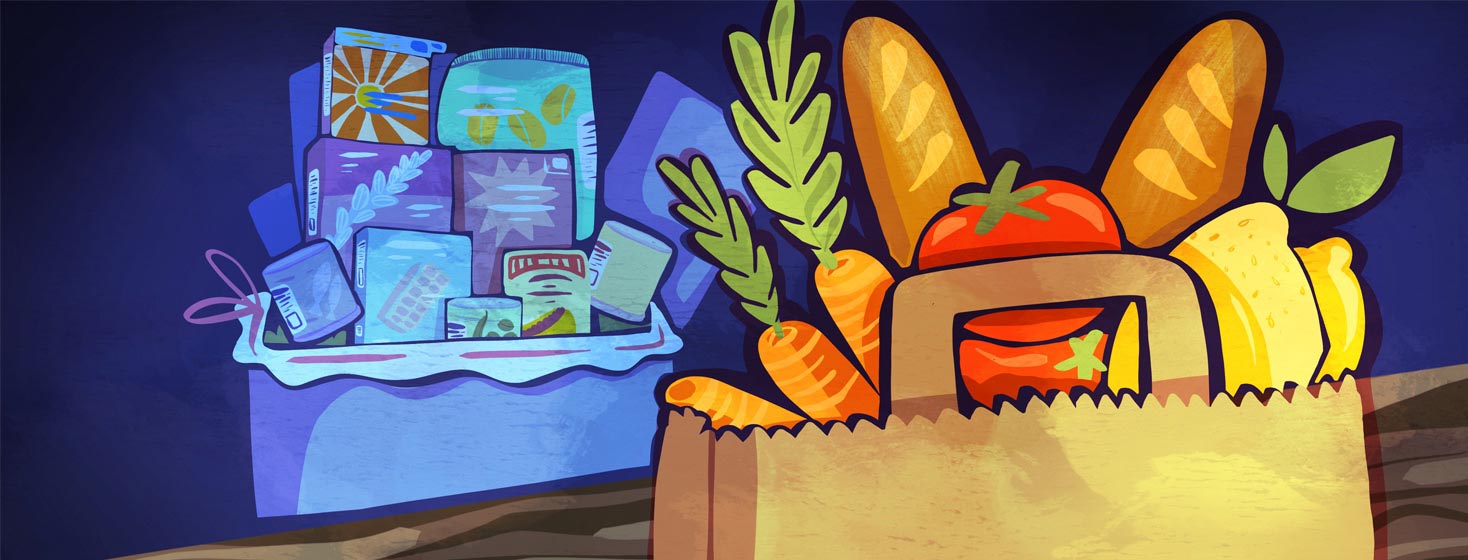I Stopped Eating Fast Food and Helped My COPD
I have been overweight for most of my life. I had 3 pregnancies in 3 years and having no tolerance for exercise didn’t help my weight problem. Then when I was diagnosed with COPD and started taking puffers with steroids, I promptly gained over 30 lbs.
Old eating patterns
As a child, dinner portions were too large and were often smothered in butter, fat, and gravy. My parents insisted on cleaning your plate at dinner time. If not, you would sit there until it was finished. Some nights, I went right from the dinner table to bed. As an adult, it took me a long time to come to terms with portion control. Controlling the amounts of what I ate was beyond me and I often ate even though I wasn't hungry and didn't stop when I was full.
As a busy mom of three, holding down a full-time job, and having a husband who worked shifts, fast food was a necessity sometimes. On hockey and gymnastics nights, it was so easy to pop through the drive-in window and have instant dinner for the family. Usually, it was pizza, subs, or greasy burgers, with a large french-fry and pop that equaled lots of sugar, no veggies, high sodium, and little nutrition value.
A change of habits
Once I was diagnosed with COPD, it took me a nanosecond to realize that I could no longer continue to eat like I was eating. A dinner of roast beef and potatoes caused such shortness of breath that it sent me to the emergency room. Not only was I eating foods too high in carbohydrates, but I was eating too much food at each sitting. This caused my stomach to bloat and interfered with my lung function. I could no longer consume the bread or pasta of days gone by.
No skipping breakfast
My nutritionist explained that if I wanted optimal health with COPD, I would have to make immediate changes. Breakfast was the hardest part for me. She explained that having breakfast would eliminate that empty feeling I had all day that led to the over-eating of snacks in the evening.
Breakfast every morning would consist of a hard-boiled egg, 2 slices of hard cheese, and a banana. It wasn’t easy getting breakfast down before 9 am but the protein would build muscles and potassium helped heart and lung function.
Making friends with salad
Lunch was a green salad. She gave me some tips on how to dress it up with meat, fish, or fruit and dressings that were low-calorie and made them taste great. She encouraged big portions of salad that would help fill me up and help satisfy my craving for sugar.
Dinner would consist of lean meat or fish that was the size of the palm of my hand. The white meat was preferred, and red meats were limited to twice a week. I would make sure that ¾ of my plate was veggies and salads. Desert consisted of fruits and raw veggies.
Results
I didn’t really develop good skills in nutrition until my 60th birthday. Being diagnosed with COPD, I would seek out and have access to a nutritionist. Pounds began to fall from me. Eliminating the carbohydrates that turn to sugar and the sodium that causes inflammation meant that I no longer needed arthritis medications. It took me about 3 months to ease off the cravings for sugar, sodium, and carbohydrates.
Editor’s Note: We are extremely saddened to say that on January 7th, 2024, Barbara Moore passed away. Barbara’s advocacy efforts and writing continue to reach many. She will be deeply missed.

Join the conversation